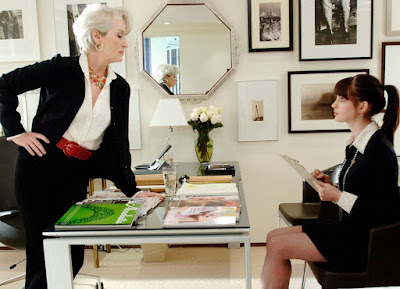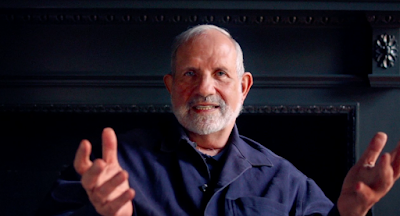Like a substantial ratio of my readers, I don’t leave 2016 with a sense of relief or accomplishment – I walk away nursing significant mental wounds. Among recent annual passages that carry with them an arsenal of perplexing human experiences, few could be considered as volatile – or indeed as troubling – as what went on over the course of the last twelve months, when social structures were rattled by startling political fallout, world violence reached a new facet of severity, and entertainment industries faced rather troubling dichotomies. It was also the year of the death of celebrity – both literally and figuratively. As famous names from the reveries of the past faded from mortal grasp, others lost their hold on their very reputations, in a time when the lone successor seemed to be corporate entities intent on exploiting the hard-earned dollar of the escapists and the feeble-minded.
Saturday, December 31, 2016
Friday, December 30, 2016
Rogue One: A Star Wars Story / *** (2016)
The first act of “Rogue One: A Star Wars Story” is the frenetic embodiment of the Hollywood machine, a collection of scenes so relentless and overdone that they provide us little time to grasp the scope of their events – unless you are ingrained enough in the mythos of George Lucas’ universe to possess a thorough comprehension, I suppose. Those are the luckiest viewers, in a way, because their sense of exhilaration is likely amplified by their connection to the material, even beyond the mere notion of a movie like this existing at all. But what can be said for the rest of us who don’t own the cliff notes version of the premise, and must observe closely to attempt and piece together the fragments of the conflict? This new stand-alone chapter to the ongoing “Star Wars” saga is an anomaly that will at first seem insufferably distant. There are early moments that involve wondrous sights and notes of nostalgia, but most are sidelined by a central narrative arc that gives little time to characters or their personal experiences. Only later, once an idea has finally lodged in our mind of what everyone’s role is, do things come together well enough to satisfy the more intellectual urges of the audience. The thing about established franchises is that as much as you think you know, so little of it matters when the gears move into new positions.
Thursday, December 29, 2016
In Memoriam, 2016
I am compelled to make a few remarks about the loss of Carrie Fisher and instead am driven to expand the focus, thanks in part to the rather surprising death of Debbie Reynolds, her mother, just a day after she herself succumbed to a heart attack. In a year of so many losses and a tremendous tone of shock, the simultaneous demises of both a mother and daughter just 24 hours shy of one another is unprecedented – an event so unsettling that even those who are removed from the mourning process must regard the occasion with some level of confusion. Peers and admirers on social media have taken to the internet to denounce this troubling year as a source of disgust, perhaps, because it has been clouded by memories we desperately want to forget. But entertainment figures, for better or worse, are symbols of an idealism we treasure in our minds; when they produce good work, it becomes something meaningful. And when they die, we are compelled to react with sorrow not because we knew them personally, but because their work provided us a roadmap towards self-discovery.
Sunday, December 25, 2016
Lo and Behold, Reveries of the Connected World (2016)
A statement comes late in Werner Herzog’s “Lo and Behold, Reveries of the Connected World” that frames the predicament of the times: “The system was designed for people who trust each other.” Those words are spoken by one of the key architects of what we now know as the Internet, a series of connections that began life in the halls of UCLA in the late 60s, back when servers were the size of coffins and the idea of sending immediate messages to great distances was an absurdity out pulp science fiction. But those dreams fueled the engines of a handful of great thinkers in those formative years, leading to an audacious task that culminated on October 19, 1969, when the first word was sent across hundreds of miles of electronic transmission: “Lo” (though it was supposed to be “log”; the system crashed before the final letter came across). The mantra “Lo and Behold” can certainly be used to describe a plethora of technological breakthroughs (and indeed has), but in those days the revolution belonged to only a fragment of people: those who had faith, conviction and loyalty to the movement, decidedly opposite of the perspective of today’s world. What is a mere person living in the here and now supposed to feel when he hears about these details, long after the origins of cyberspace have been blurred and the net is seemingly in control of vitriolic bullies who are capable of inflicting great harm with words and actions?
Tuesday, December 20, 2016
Honest Man: The Life of R. Budd Dwyer (2010)
The first time any young journalist hears the name R. Budd Dwyer it usually occurs during introductory reporting curriculums, when the discussion shifts from writing styles and plunges into the troubled waters of ethics. Once thought to be the leading point of an argument about appropriate newsroom conduct, his very public suicide in front of television cameras has come to rest in the margins of a convoluted history in media decency, especially in the wake of a post-9/11 world of bombings, massacres and civilian beheadings. But it persists, no doubt, because there remains almost no similar conduct for people to compare it to; as such, his is a situation frozen in the shocking embrace of controversy, and a constant source of ambiguous political arguments that would like to erase his strange existence from memory. Shameless voyeurs, however, have preserved his notoriety even more than those fascinated by the puzzling circumstances leading to that tragic day, and easy is the opportunity to search the internet for those final moments, relentlessly plastered all over video feeds. Some may initially wonder if “Honest Man,” a documentary about his troubled political career, would even have been relevant if his last act had not continued to reverberate with perverse allure. Is there anyone left that cares more about the context of that moment than the disquieting inevitability of his lifeless body slumping down in front of a room full of cameras?
Friday, December 16, 2016
The Devil Wears Prada / *** (2006)
In the conventional sense “The Devil Wears Prada” is about a woman who finds herself at the mercy of a demanding boss and does everything possible to earn her approval. In a more conscious perspective, it takes on added meaning – namely as a metaphor for our work-obsessed culture and the growing divides between professional and personal value systems. The heroine at the heart of the matter is the embodiment of that example, and certainly there are moments where her struggles are exploited for the shallow exercises of a standard comedy plot, but why doesn’t it end there? Why does her situation persist so glaringly after the jokes fade and the characterizations erode? Because her life reverbs with the same struggles and contradictions that affect most in the American work force, where it has become a perfunctory routine to abandon personal space and mental safety nets. More serious or satirical contemplations would have burrowed down to the root cause of that irony, but this movie is far less concerned with reasons than it is with the ramifications. And that’s ok, you might say, because the surface of the matter is potent enough to engage our emotional investment, and the characters identifiable enough to sell this pitch with some level of relatability.
Thursday, December 15, 2016
Trespassing Bergman (2013)
In the turbulent waves off the coast of Sweden rests the small island of Fårö, a patch of land that has been the source of constant discussions amongst film buffs and connoisseurs of cinema. On its shores is, we soon discover, the house that Ingmar Bergman called home during the last decades of his life, though few knew where it stood; until his death, its whereabouts remained the closely guarded secret of nearby locals, who feared their most treasured (and secretive) icon would have his privacy undermined by opportunists eager to exploit it. But now the secret has emerged, and film directors far and wide have an awakened interest to wander into the private rooms of his compound, no doubt to gain a sense of his profound essence. Was his vehement privacy as fascinating as his immense body of work, or is there a far more profound undercurrent driving these men and women towards the doorstep of their secretive teacher? When the great Alejandro González Iñárritu wanders into a meeting room and is nearly driven to tears by the power of the moment, it serves to anchor the sentiment of his defining thought: “If cinema were a religion, this would be Mecca, or the Vatican.”
Monday, December 5, 2016
De Palma (2015)
Like most 20th century directors working in the wake of the golden era, Brian De Palma’s sense of craft was not so much a divine creation as it was an enacting of the rich experiments of Alfred Hitchcock. Such wisdom is cursory to any serious record of modern filmmaking, and “De Palma” – the new documentary about his notorious career – begins with a discussion about “Vertigo,” the most direct of his Hollywood allegories. “What he was doing,” De Palma describes, “was creating these romantic images and then killing them off. And that’s what we as directors do all the time.” It is a precious morsel countless others have discussed in unison with their laborious practices, and certainly Hitchcock’s most treasured film is regarded as autobiographical for most, but do his lessons reverberate as consistently as they should? The famed creator of “Dressed to Kill” doesn’t believe so; in a two-hour sit-down that involves crawling through his catalog one picture at a time, the most persistent of points is how Alfred’s shadow has been so dimly cast by those working within his traditions, unless you happen to be him. Perhaps that says more about the subject at hand than those who have freely abandoned the structure of their important ancestors, but far be it from any fascinated observer to interrupt the lines of thinking of one of the more popular creators of the medium.
Sunday, December 4, 2016
Arrival / ***1/2 (2016)
In times when audiences are trained to be enamored by special effects and simplified narrative patterns, “Arrival” is an unusual discovery: a movie that requires us to think beyond the polished surface and contemplate our own place in the universe. While stories revolved around this theme have been exercised abundantly in the science fiction medium over the years, usually they have been to the service of gratifying the momentary senses rather than stimulating the recesses of the human brain. But those paying very close attention to what is occurring within the frames of Denis Villeneuve’s new endeavor will not be walking away with basic assumptions or criticisms – they will be too occupied by the underlying philosophies that have inflicted their thought process, all brought to the surface by perceptive dialogue and a free-form plot structure that considers the very concept of space and time. Minds like Stanley Kubrick and Steven Spielberg knew we were starved for the discovery of deeper meanings in the milieu of dazzling images, but now the movies find themselves leaping audaciously past the domain of earthly assurances to penetrate the membrane of the very cosmos we pass energy through.
Subscribe to:
Posts (Atom)









